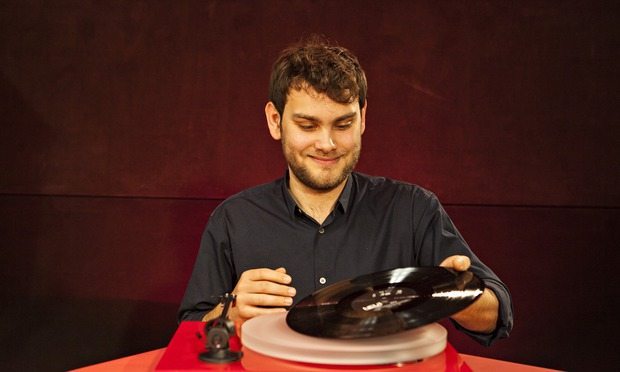
As a live DJ, songwriter and producer, Greene, aka Fort Romeau, works exclusively in vinyl. Here, he puts top decks through their paces

2014 was a bumper year for vinyl sales thanks to a new breed of listener: the twentysomething enthusiast. Jaded by the limitations of digital recordings, they are turning to vinyl as a richer, more tangible way to collect and consume music. Mike Greene, aka Fort Romeau, might be considered a kind of figurehead for this movement. Since going solo from La Roux’s backing group six years ago, he has worked almost exclusively with vinyl, both as a live DJ and as a songwriter and producer.
“In an age when every aspect of our lives is becoming more digitised, it’s nice to revert to something more mechanical,” says Greene, 29, whose 1980s Chicago-inspired house tracks have been attracting growing recognition on the dance music scene “If you only listen to music digitally, you’re so far abstracted from it.”
Greene grew up in Chester, where his father’s 10,000-strong record collection formed the basis of his devotion to vinyl, and he began producing music when he was 12.
Choosing a turntable, he admits, is a challenging procedure that requires close attention. “There are so many variables: the cartridge has a certain tonality to it, the tone-arm will impart its own frequency spectrum, the accuracy of the drive’s timing affects the way the sound proceeds, and will help it stay on clock, and the surface the turntable’s mounted on affects the sound because of resonances from the surrounding environment.”
It sounds dauntingly sophisticated but Greene insists sound quality is something all listeners can appreciate. “You’d be hard pressed to find anyone, whether or not they knew about hi-fi, who wouldn’t notice a clear difference between [these turntables].”
Greene has lugged his sack of records to some of the best-known dance clubs in the world and has lovingly adjusted the tone-arms of all manner of turntables, from the rare and valuable to the cheap and temperamental. “A good way of thinking about a record player,” he advises, “is to think of the sound as being like a photograph. If you listen to the same record on two turntables, you’re looking at the same picture, but different elements might be in focus, maybe the colour cast and the temperature might differ. Even if you’re not a professional photographer, you’d still be able to pick up on those changes on light and focus.”
THE TEST
The equipment used
Sonus Faber Venere 2.0 standmount speakers
Quad II classic integrated valve amplifier with built-in phono stage
QED Silver Anniversary speaker cables
The control records
Metro Area – Caught Up
Kate Bush – Running Up That Hill (A Deal with God)
Michael Boothman – What You Won’t Do For Love
AUDIO TECHNICA AT-LP120-USB
(decks.co.uk, £199. Cartridge: Audio-Technica AT95E)
It looks like a rip-off of the Technics 1210, which is exactly what it’s supposed to be. The 1210 was the industry-standard DJ turntable and this is 95% the same, visually at least, although it feels more plasticky. It sounds a bit disjointed, as if things aren’t quite locked together, and I don’t really like the top end. It’s sounds a bit boxy and dark, not very open. This is a shade underneath the others in terms of quality but there are other considerations. If you wanted to DJ at home, for example, this would be your only option as it’s got direct drive rather than belt drive, it’s cheap and comparatively robust. So if you were planning on carting it around, or if you had kids or pets, the practicality might outweigh the sound quality.
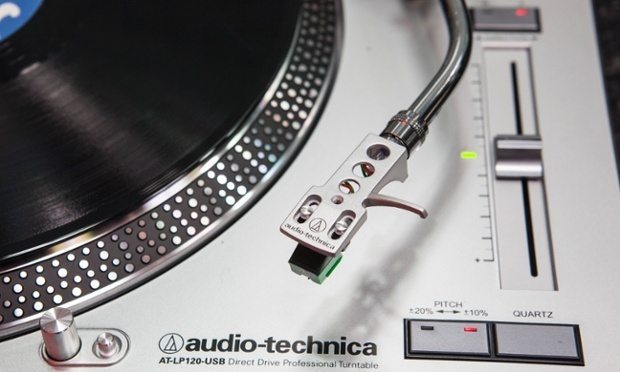
THORENS TD-203
(hifigear.co.uk, £549. Cartridge:Thorens TPU257 MM)
This is quite an unusual design for a tone-arm. The two weights are designed to give you a broader range of adjustment and more control. My immediate impression is of coherence. The sounds are snappy, the transients are punching through the way they should, the separation between sounds is coming across as it would in as ideal playback. The quality of the individual sounds is better too, and so is the representation of the higher frequencies, which are brighter and smoother. The vocal sits back a bit, which is a matter of taste, but I like it. The overall presentation is very natural, very rounded – nothing stands out too far, but it’s not sludgy either. It sounds brilliant.
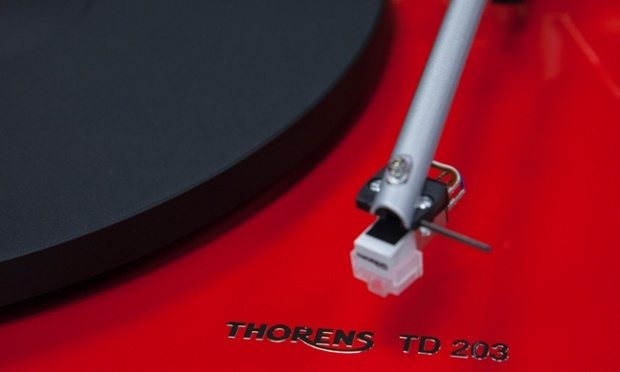
REGA RP3
(rega.co.uk, £549 including cartridge – Elys 2)
This sounds great. It’s got more punch than the Thorens, and it’s much more open than the Pro-Ject (see number 5). The soundstage is really broad, it feels like it can breathe. There’s a slight bloatedness to the bass but the high end is crisp and detailed. Not quite as detailed as the Thorens maybe, and perhaps I don’t like it quite as much, but it’s the second best. Kate Bush’s record is super washy, very wet in terms of effects – people don’t make records like that anymore. It’s a demanding record in terms of getting the best out of it, that’s why it’s a good one to try. It sounds great here.
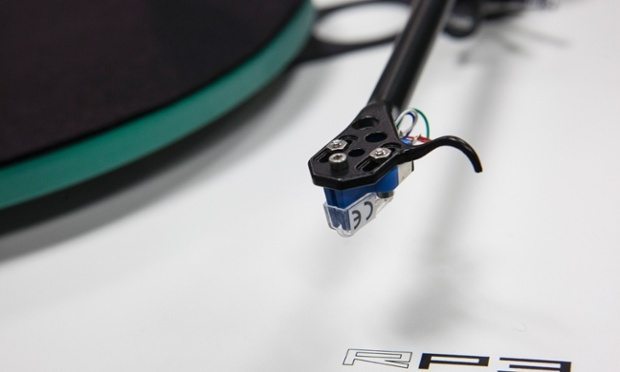
EDWARDS TT1
(audioaffair.co.uk, £379.96. Cartridge: Edwards C100)
The style of the Edwards is very similar to the Rega, it seems to be modelled on the same design. Like the Rega, it doesn’t have a speed switch – you have to physically change the drive belt if you want to go from 45 to 33. Sound-wise, the image is pretty boxy. We’re missing the separation we had with the Thorens and the Rega, everything feels a bit clumped together, like you’ve taken all the ingredients and pushed them into a pile. The sense of space left-to-right is very centred and the presentation has less depth than on some of the others. That said, the vocals sound lovely and the transients come forward a lot.
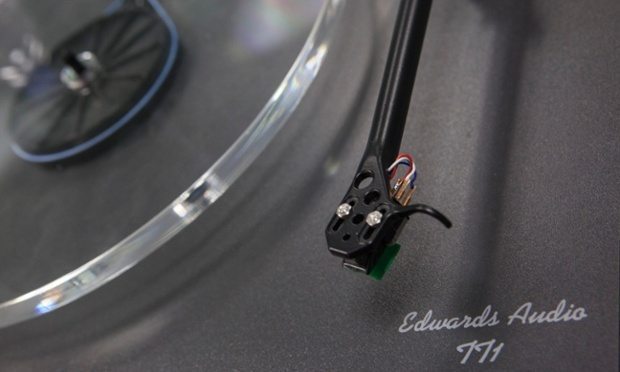
PRO-JECT DEBUT CARBON ESPRIT SB
(henleydesigns.co.uk, £425. Cartridge: Ortofon 2M Red)
Listening to the Boothman record, the vocal really comes through on this one – more than on any of the others, which some people really go for. I’d say it’s not as broad a sound as the Thorens but it’s more direct, more assertive. There’s more oomph, but it’s less open and a bit drier. For most people it would be more than good enough. The improvement from, say, the Audio-Technica is pronounced, and it’s a huge difference to listening off your laptop.
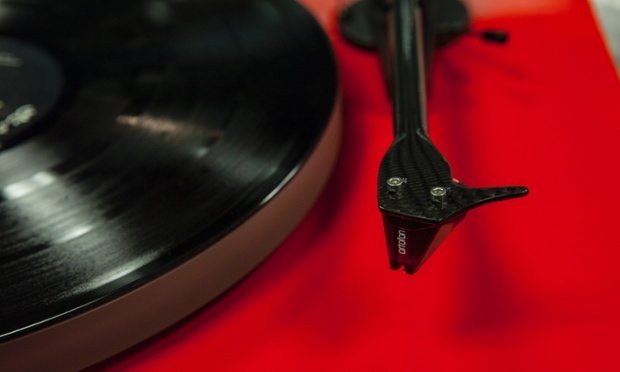
Thanks to the Guardian Website for this story
Thinking of getting/or have got a new turntable? Be sure to check eil.com for a huge range of vinyl, across every genre with prices to suit every pocket – start searching here




~I am interested in big band (30s and 40s) and classical. Also have some show tunes of the 40s and 50s. I have vinyls and cassettes in quantity and quality. Plus a number of CDss.